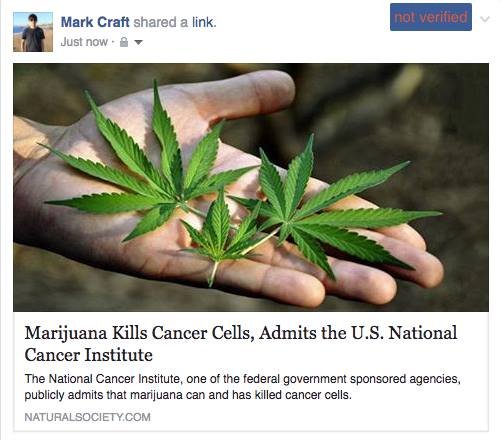According to Pew Research Center, the recent studies suggests that almost half of adult Americans depend on Facebook as a source of news. So, we could assume that Fake news on Facebook might lead-up to Donald Trump’s victory in the recent election. Even, Barack Obama called Facebook a “Dust cloud of nonsense” for spreading fake news and false information during the time of an election. However, Facebook’s CEO Mark Zuckerberg had defended all the criticism and said that since fake news is such a small percentage of the stuff share on Facebook, it could not have any impact. However, during a Hackathon at Princeton University which is sponsored by Facebook, four college students have managed to create an algorithm in the form of Google Chrome Extension withing 36 hours. The group of students named their project as “FiB: Stop living a lie” The Students are Anant Goel who is a freshman at Purdue University, Mark Craft who is a sophomore at University of Illinois Urbana-Champaign (UIUC), Catherine Craft who is a sophomore at UIUC and Nabanita De who is a second year Masters in computer science student at UMass Amherst. While Talking about how their new algorithm works to check the news feed, Nabanita De told Business Insider “It classifies every post, be it pictures (Twitter snapshots), adult content pictures, fake links, malware links, fake news links as verified or non-verified using artificial intelligence.” “For links, we take into account the website’s reputation, also query it against malware and phishing websites database and also take the content, search it on Google/Bing, retrieve searches with high confidence and summarize that link and show to the user. For pictures like Twitter snapshots, we convert the image to text, use the usernames mentioned in the tweet, to get all tweets of the user and check if a current tweet was ever posted by the user.” Little tag was added by the browser extension that simply says whether the story is verified or not. For example, the below post said it will cure cancer which is fake. So, the extension displays “Not verified” On the other hand, let’s take the example of Simpsons series. The Simpsons predicted president Trump in 2000 which is actually true. Therefore, the extension displays the story as “Verified” The extension is a part of an open-source project. Therefore, developers can install and make valuable changes to it. Facebook had worked hard to remove fake stuff around the social media and it should not just add a small tag and will not ask people to install a chrome extension. However, these students have shown us how easy to manage this fake news problem and we hope that it surely inspired Facebook to take actions more quickly. So, what you think about this? Leave your thoughts in the comment box below.

